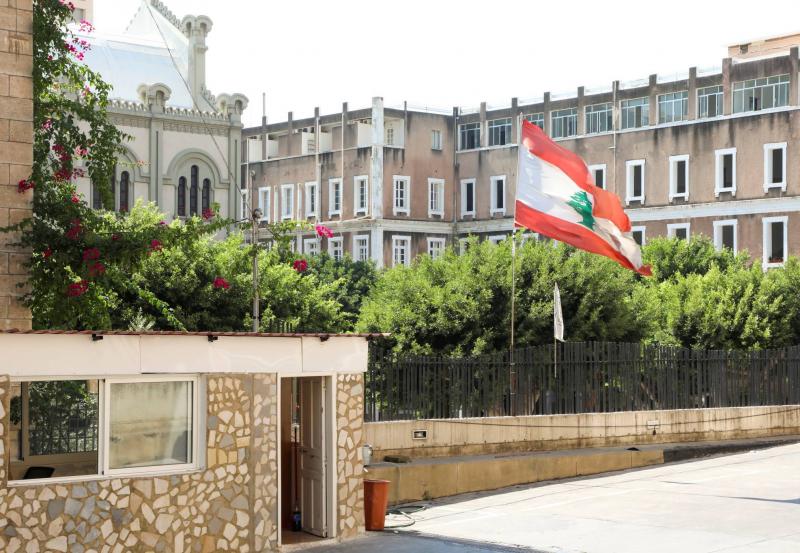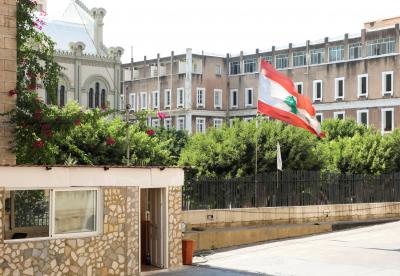Despite all the discussions about external efforts and initiatives regarding Lebanon to assist in resolving its internal issues, primarily the presidential file, there is currently nothing on the horizon. Sources from "al-Jumhuriah" report that these issues are not on the agenda of priorities for countries at this time; the focus is on regional developments and the repercussions of the Israeli war on Gaza. A senior official, in response to a question about external mediations concerning the presidential file, stated: "If there were serious or urgent initiatives regarding the presidential file, at least some indications or preliminaries would have surfaced by now. In any case, we can only wait, and we are ready to positively engage with any initiative from any source."
In this context, a pessimistic reading of the presidential situation is noted, as a political source indicated that there is little hope for a presidential breakthrough in the foreseeable future. He told "al-Jumhuriah": "I fear that the presidential file has been postponed until after the war, and let the masters of obstruction rejoice." Regarding external initiatives and the rumored visit of French envoy Jean-Yves Le Drian, he said: "I know Mr. Le Drian personally; he is a serious and honest person in his endeavors, but I am not aware of when he might come. However, the current situation suggests that foreign involvement, all foreign involvement without exception, does not care whether the presidential file is resolved or not. Even if new initiatives toward Lebanon arise, what is currently desired from Lebanon is to cool the southern front and encourage Hezbollah to cease its operations against the Israeli army on the borders, fearing the expansion of the conflict. This has been confirmed by all the envoys, including Amos Hochstein, who visited Lebanon. They are primarily concerned about Israel and their interests."
The same source expressed great fears regarding flashpoints in the south, stating: "I feel that war is imminent and may not be delayed; perhaps it could be hastened by a miscalculation or a mistake in a missile launch. Thus, I reiterate my warning to Hezbollah to beware of being drawn into a war." In response to a question, he remarked: "The region has entered a phase of serious transformations; the events of October 7 opened up a new reality, and it is clear from the ongoing military and political developments that this will take some time, but in the end, all countries in the region, including Israel, will be affected."
In parallel, ahead of what has been rumored regarding a meeting of the Quintet Group of Nations in the coming weeks to revive the presidential action, "al-Jumhuriah" learned from reliable diplomatic sources that French Ambassador Hervé Magro is preparing for an upcoming meeting of the Quintet ambassadors in Beirut in anticipation of a meeting of their representatives at a higher level in one of the committee's capitals, whether Paris, Riyadh, Doha, or Cairo, serving as a prelude for the return of envoy Le Drian carrying directions from the central committee.
The sources added that this new movement aims to revive the presidential election trajectory after the explosive regional situation has overshadowed it. France will base its actions on coordinating with the Quintet members to attempt to separate the Lebanese presidential track from the regional one, so that the complications of the two issues do not worsen if they remain connected.
It was noted that the Quintet representatives – Saudi Nizar Al-Aloula, Qatari Mohammed Al-Khalifi or Jassim bin Fahd, and French Jean-Yves Le Drian – are well-acquainted with the details of the Lebanese file and stand ready to move again to Beirut after the Quintet meeting, the time and place of which have yet to be determined, pending a review of some ideas being handled by the ambassadors in Beirut.
Simultaneously, there was a notable movement among the Quintet ambassadors in Lebanon. A meeting took place at the residence of the Saudi ambassador in Lebanon, Walid Bukhari, yesterday, where he met with the French ambassador. According to distributed information, "the two sides discussed the most significant political developments occurring in both the Lebanese and regional arenas, in addition to the efforts made to finalize the presidential election as quickly as possible, allowing Lebanon to emerge from its various crises amid regional developments."
Additionally, Ambassador Bukhari held a meeting at his residence in Yerzeh with Egyptian Ambassador Alaa Moussa, where they discussed "the latest developments occurring in Lebanon and the region, the situation in the occupied territories, and the urgency of completing the presidential election in Lebanon as soon as possible amid the rapid developments taking place in the region, alongside various mutual interest issues."
In a related presidential context, member of the "Independent Parliamentary Meeting" Deputy Sherbel Massaad informed "al-Jumhuriah" that "the meeting continues its weekly sessions to formulate a vision regarding the presidential election, in addition to discussing legislative and parliamentary issues raised before the parliament, aiming to reach common ground on all matters, primarily the presidential election. Next week, a meeting will be held at Deputy Neemat Afram's office to continue the discussion. Individual deputies are engaging with other deputies since each of us has a margin for movement and specific contexts."
He added, "So far, there is no common name among us, but there are shared qualifications for the forthcoming president, and there is consensus on the necessity of holding open electoral sessions to elect the president and apply the constitution, while 'Lebanizing' the electoral process rather than waiting for foreign initiatives that have yet to yield results. The internal democratic process should take its course without waiting for external impositions in light of the existing economic and political crises."
While military operations continued on the southern front, expert and analyst projections favored the hypothesis of war and coincided with warnings of critical weeks open to all possibilities, linked to Israeli threats — the latest of which was issued by Israeli Chief of Staff Herzi Halevi, who indicated that "the likelihood of war breaking out on the northern border with Lebanon has become much higher than it was in the past."
In this context, reliable sources revealed that warnings were conveyed by the ambassador of a major European country to official Lebanese entities that "war is approaching Lebanon," cautioning about what he termed "increasing fears" that matters may spiral out of control. According to the sources, the mentioned ambassador pointed out that "American and French interventions have prevented the war from expanding toward Lebanon; Paris has made significant efforts with both the Lebanese and Israeli sides to prevent a severe and broad confrontation between Israel and Hezbollah, while Washington, which is no secret, has exerted heavy pressure on Israel, compelling it not to initiate war with Lebanon. U.S. Secretary of State Antony Blinken, during his recent visit to Tel Aviv, secured from Israeli Prime Minister Benjamin Netanyahu his agreement to avoid opening a war, but we are beginning to witness a dangerous escalation and threats and preparations for confrontation from both Hezbollah and Israel."




